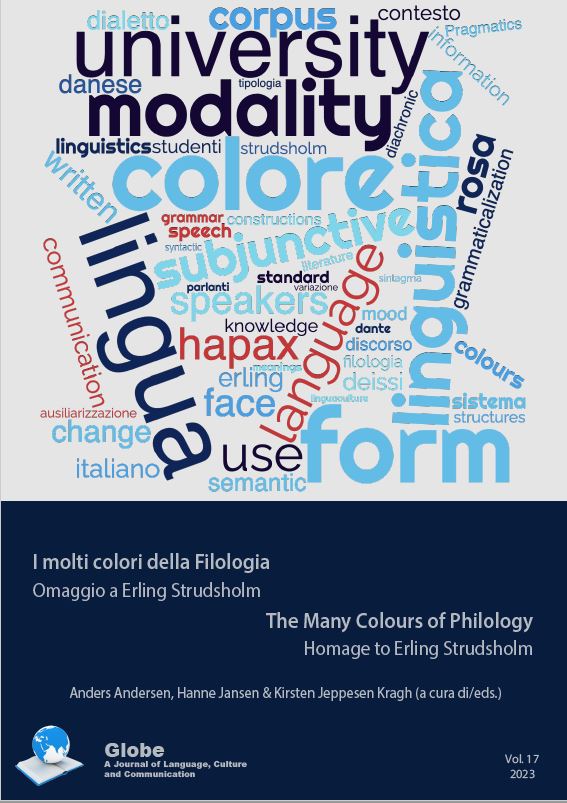Il dinamismo linguistico dell'italiano tra norma e adattamento ai mezzi di comunicazione
DOI:
https://doi.org/10.54337/ojs.globe.v17i.8205Abstract
This article aims to describe how the pressure wielded by the means of communication, with their affordances
and techincal restrictions, has been contributing to shape not only the language usage specific to each means,
but the overall current common usage of the Italian language. The grammatical norm codified by the grammar
books, the standard variety, is incomplete with respect to the real usage of the speakers, given that it describes
a variety of the language, neglecting the many lexical, syntactic, and textual possibilities existing in the usage.
Speakers, in fact, select linguistic forms and constructs on the basis of different, interdependent factors and the
standard usage itself is influenced by innovative forms continually emerging from usage. Language change
over time also intertwines with the synchronic axes of variability, including the one relating to the influence of
the channel used for communication. When the message passes through a medium, it must undergo an
adaptation to its system of rules. The passage always involves a coding, which influences the form of the
message. Linguistic usage, then, is the result of an interweaving of interdependent factors, among which the
grammatical norm and the means of communication are of pivotal importance. Both of these factors impose
rules, i.e. restrictions, on usage, shaping and defining it; at the same time, however, usage, by its creative and
innovative nature, constantly pushes the rules, shaping the norm and finding ways to adapt the means of
communication to hybrid formats. In this dynamism the language changes, it abandons worn patterns and
invents new ones, adapting itself to the world and adapting the world to itself.
Downloads
Published
Issue
Section
License
Articles published in Globe: A Journal of Language, Culture and Communication are following the license Creative Commons Attribution-NonCommercial-NoDerivs 3.0 Unported (CC BY-NC-ND 3.0). Authors retain copyright and grant the journal right of first publication with the work simultaneously licensed under a Creative Commons Attribution License: Attribution - NonCommercial - NoDerivs (by-nc-nd). Further information about Creative Commons


